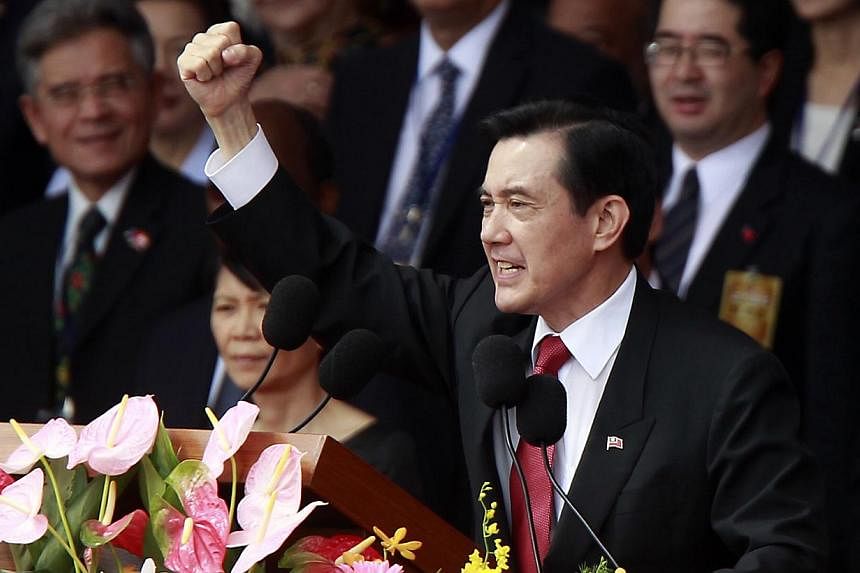TAIPEI (AFP) - Taiwan's government expressed alarm Monday at China's free trade agreement with South Korea, the island's strong trade competitor, and urged the opposition to stop boycotting a planned services pact with Beijing.
South Korea announced earlier Monday it had effectively reached a free trade deal with its giant neighbour China. It expects to sign by year-end the pact that will eventually remove tariffs on over 90 percent of goods.
Taiwan's government spokesman Sun Lih-chyun described the news as a "most worrying event" for the island.
Taiwan competes fiercely with South Korea in products ranging from textiles, semiconductors and flat panels to machine tools and steel items.
"With the agreement, South Korea will be able to sell its products cheaper in the Chinese mainland, thus lowering the competitive edge of Taiwan-made products there," Sun told Agence France-Presse.
The China deal will mark another crucial step forward in South Korea's push for greater access to global markets, he said, adding that Seoul has already signed free trade deals with 50 other countries.
China is Taiwan's largest trading partner.
The export-reliant island currently only has free trade deals with Singapore, New Zealand, Panama, Guatemala, Nicaragua, Honduras and El Salvador.
Taiwan and China in June 2010 signed an Economic Cooperation Framework Agreement, which was widely seen as the boldest step yet towards reconciliation following their split in 1949 at the end of a civil war.
But a follow-up agreement to open up their service sectors provoked an unprecedented occupation of Taiwan's Parliament and mass street protests in March and April. It is still stalled in Parliament amid fears the island's economy is becoming too reliant on the mainland.
Taiwan in September reopened negotiations with China on another follow-up agreement, a goods free trade pact which was delayed about five months in the wake of the protests.
The two pacts are not expected to be approved by parliament before year-end.
The ruling Kuomintang has accused the main opposition party of deliberately delaying consideration of the services trade pact, an allegation denied by the Democratic Progressive Party (DPP).
DPP secretary general Joseph Wu said the negative impact from the China-South Korean trade deal was being overplayed and warned of over-reliance on the Chinese market.

